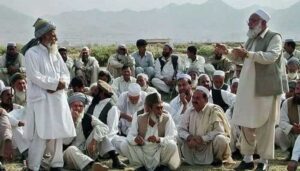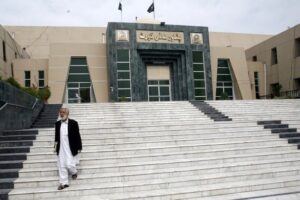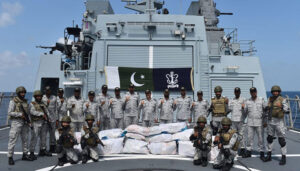PESHAWAR – Pakistan’s struggle to eliminate terrorism has become a story of deep political division and fractured leadership. The fight against terrorism in Pakistan suffers as rulers clash and fail to unite behind a single strategy, while militant groups remain cohesive and relentless.
In a country where the leadership cannot agree even on the fundamental goal of eradicating terrorism, talks of negotiating with terrorists gain support from some quarters, while others reject any dialogue outright. This political fragmentation has spilled into the national assembly, where even the chief ministers of provinces face harsh words and threats more fitting for street gangs than elected representatives.
Also Read: Gandapur’s changing stance raises questions on KP’s anti-terror efforts
The toxic political environment breeds mistrust and vendettas, overshadowing any hope for a coherent anti-terrorism policy. Meanwhile, the people of Pakistan — who have borne the brunt of decades of violence — remain largely ignored. Blinded by party loyalty and personal allegiance, many continue to prioritize their preferred leaders over the country’s future.
Economic indicators may show signs of progress, but the political arena remains mired in bitter rivalry. Revenge politics dominate, with yesterday’s victims becoming today’s perpetrators and tomorrow’s targets. In this climate, the urgent need for a unified, effective strategy against terrorism is lost amid accusations and power struggles.
Also Read: Pakistan’s anti-terror response fractures as political blame game intensifies
The reality on the ground is grim. For over 20 years, Khyber Pakhtunkhwa and the former Federally Administered Tribal Areas (FATA) have endured near-continuous conflict fueled by terrorist activities and military counteroperations. Families have lost loved ones and faced displacement. After decades of conflict, exhaustion and despair have led many tribal communities to call for an end to active militancy and demand negotiations.
Yet, as the fight against terrorism in Pakistan drags on, it is clear that militant groups have repeatedly broken peace agreements. There is no guarantee that future deals will hold. Temporary peace offers only brief respite before violence resurges.
Also Read: Terror Attacks in Khyber Pakhtunkhwa Rise With 756 Cases in Six Months
Pakistan’s military labels the the hardline militant group Tehreek-e-Taliban Pakistan (TTP) as India-backed ‘fitna al-khawari’. Even if talks resume, questions remain: will militants truly renounce violence? Until then, any peace deal risks weakening the state.
Efforts to engage Afghan Taliban to rein in militants in Afghanistan have so far yielded no substantial reduction in violence. Pakistan finds itself stuck in a vicious cycle: despite losing thousands of civilians, soldiers, and police officers, and conducting repeated military operations, the pattern of violence, displacement, and fragile ceasefires persists.
It is time for civilian leaders, intelligence agencies, the military establishment, and regional experts to critically reassess Pakistan’s anti-terrorism policies. Together, they must break the cycle of escalating militancy, displacement, temporary peace, and renewed conflict — and seek a lasting solution to Pakistan’s militancy problem.
Ending terrorism in Pakistan should not be a matter of political dispute — it is a national imperative. The public yearns for peace. Provincial and federal governments share the fundamental responsibility to restore security. Yet, while terrorists stand united, Pakistan’s rulers remain divided. Negotiations and jirgas continue with militants even as politicians hurl abusive words at each other in the national assembly.
In such a fractured landscape, who will break the terrorists’ backbone — or will the state’s spine bend instead?












